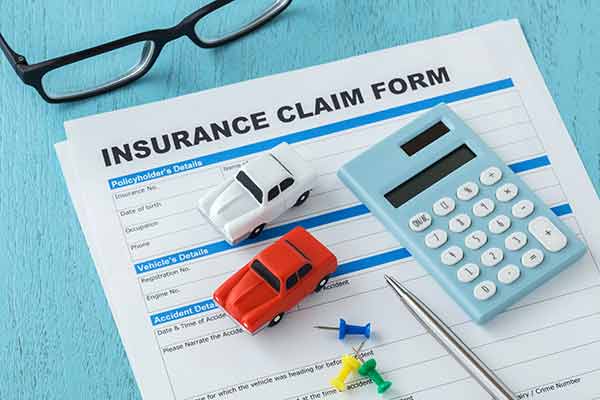Filing a Houston car accident insurance claim has several important steps to go through. In Section 55.026, the Texas law* requires the police to be called in car accidents that result in injury, death, and/or severe property damage. Calling the police will ensure that a police report of the accident is documented will help when you are filing a claim.
The police report on the auto accident will contain all details of the scene; an injury or death is involved, the at-fault driver being intoxicated, a driver not having insurance, or if a driver leaves the scene. The information of all drivers involved in the crash will be available on the police report as well. The police report is the most crucial document for collecting compensation when going through the claims process.
Inform the Insurance Company
After calling the police about your Houston car accident, you need to notify your insurance company about the accident. When giving details to both the police and your insurance company, it is essential not to admit any type of fault for the accident. Our Houston personal injury attorneys recommend not giving complete detailed statements to insurance companies/police about the accident. This would avoid blame being placed on you if you were the victim.
The state of Texas is an at-fault state, and this means that the person found at fault for the accident is responsible for paying for your damages. Insurance companies will offer a settlement that is barely enough to pay for your damages. Car accident claims for victims should be compensated to the fullest, and a personal injury lawyer will be able to assist!
Texas car insurance is mandatory, with minimums of $30,000 for each injured person and $60,000 per accident with liability coverage. Property damage has a minimum requirement of $25,000.
If the at-fault driver doesn’t have car insurance, you might be worried about how you will be able to claim compensation. Our Houston car accident attorneys recommend having uninsured motorist coverage to protect yourself in this scenario! UM is coverage you have that will pay for your damages, medical bills, lost wages, and other expenses.
However, it is important to remember that insurance companies will only try to pay for damages and injuries. If you want to be compensated for lost wages and other non-economic losses, you need a car accident attorney.
Evidence Needed to Prove Fault
When you begin pursuing a case against a driver’s insurance company, there are a few pieces of evidence that will help prove their negligence.
Types of Evidence:
- Pictures/videos of the accident scene
- Pictures/images of property damage and injuries
- Police Report
- Witness statements
- Medical documentation of injuries from a doctor
When discussing your case with our Houston car accident attorneys, they will need all of these pieces of evidence. During your free consultation, they will be able to provide you will advice on how to handle discussions with insurance companies. They will also give you peace of mind when handling your case. Our attorneys take all of the evidence you provide them with and go digging themselves for more proof to put together an excellent statement for your claim!
As stated before, Texas is an at-fault state. Your accident attorney will need all evidence to prove the other driver was at fault for the crash. In situations where the driver is intoxicated, under the influence of drugs, or driving recklessly, determining fault is relatively easy. However, having the proper evidence and a great accident attorney will help in crashes where this is not the case!
What if all parties involved in the car accident were somewhat at fault for the crash? In Houston and the entire state of Texas, there is a modified comparative negligence law. This law states that if you were found partially at fault for the car accident, your compensation would be reduced by the percentage at fault. For example, if you were found to be 10% at fault for a crash and are receiving $100,000 in compensation, your total payment would be reduced by $10,000 only to receive $90,000.
This modified comparative negligence law is why it is essential to gather as much evidence as possible when pursuing a claim. Basically, car accident attorneys must be able to prove the other driver is at least 51% at-fault for the crash for their victim to receive a settlement. Along with this, you need to start your claim within the statute of limitations. For Texas, the statute of limitations is only two years long. These two years start after the date of the accident.

